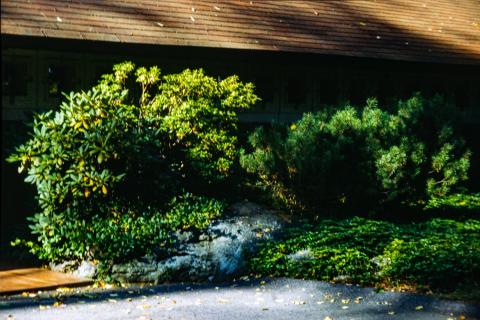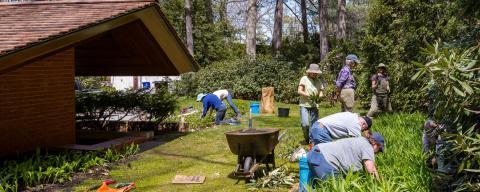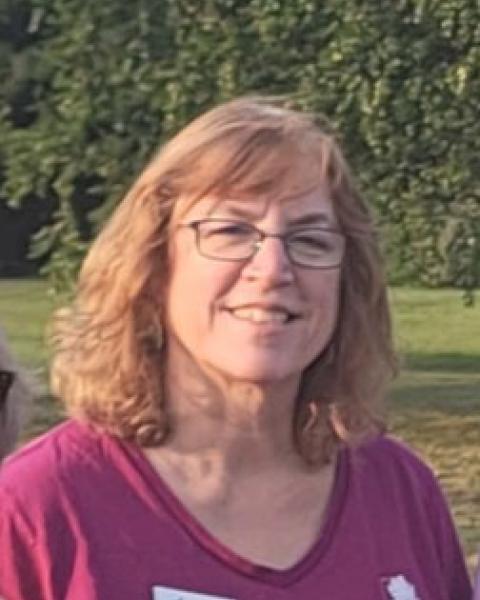Curating the Land
“That Van Gogh is looking a bit overgrown. Prune that edge a bit.” Museum curators work hard to keep the lighting and humidity conditions perfect for displaying works of art over time. Dealing with nature is not as controlled when maintaining outdoor artistry. You would not hear of an impressionist work in need of a good pruning!
Yet New Hampshire is full of exterior beauty. Landscape and garden designs are a key part of our history, whether it is in the historical garden on Appledore Island, the trails and gardens of Canterbury Shaker Village, or the landscapes of the Zimmerman and Kalil houses (which are part of the Currier Museum). Natural Resources Stewards and Master Gardener volunteers who work with local community gardens, councils, towns and organizations, also give their time to maintain public landscapes that blend nature and human design.
One example noted is the Zimmerman house in Manchester, currently part of the Currier Museum. This house, originally owned by Dr. Isadore and Lucille Zimmerman, was built using the innovative designs of architect Frank Lloyd Wright, who worked closely with them during its construction. His designs utilized the existing landscape of a site including mature birch, oak and hemlock trees, and he also designed surrounding gardens to best incorporate with the windowscapes of the house.
Museum goers can experience Wright’s vision when they visit the house, but only through the vigilant upkeep of the gardens provided by Natural Resources Steward (NRS) and Master Gardener (MG) volunteers. Nature is ever-changing, and without help shrubs and plants become overgrown, trees suffer disease and insect damage, and the landscape once envisioned by a great architect is lost in a thick bramble.
As part of their work with NRS and MG programs, several volunteers gather every May and take on the task of maintaining the lawns, trees and gardens of both the Zimmerman and Kalil houses (another house created with Wright and formerly owned by the Kalil family).
Before the two programs had begun working with the museum, time had covered some of the key pieces of Wright’s designs with overgrown shrubs and bushes. His classic line of small, square windows facing the front yard were hidden from view by shrubbery that reached to the roof and blocked out light to the interior. A classic NH glacial boulder in the ground that Wright used at a focal point prior to entering the home was almost completely covered by foliage that hand since grown around it.

Volunteers, led by UNH Cooperative Extension Specialist Mary Tebo Davis, recognized the importance of these two elements and utilized proper practices to prune back the overgrown shrubs while keeping them healthy. Weeds and invasive species of plants were removed to make way for the original flowers and plants the Zimmermans intended to please homeowners and visitors alike.
Natural Resources Stewards and Master Gardeners work in their towns and communities to best integrate human occupation and natural landscapes, ensuring the effectiveness and beauty of both in conjunction with each other. Master Gardeners work with garden clubs, school gardens, and historical gardens (among other projects), while Natural Resources Stewards work on a broad range of natural resources-related projects that may be with conservation commissions, planning committees, or watershed associations. Often these two programs come together to work at one location, such as the Canterbury Shaker Village, where volunteers from both programs meet weekly to take on the daunting task of maintaining over 700 acres of trails, landscapes and historical gardens.
Like an impressionist painting, viewing these natural areas makes an impact on the viewer and provides a forum that benefits those that seek the beauty in New Hampshire’s history. In the ever-changing, ever- growing canvas of nature, UNH Cooperative Extension volunteers in the NRS and MG programs make sure that beauty is here for the decades ahead.
Volunteering
Each year, about 6,000 volunteers donate their time and energy to extend the work of Extension. Our 14 volunteer programs provide opportunities for anyone wanting to make life better in New Hampshire.
Learn More

